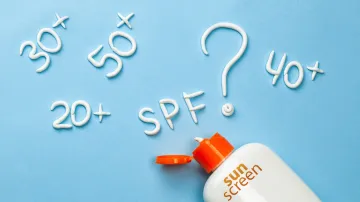Sunscreen is an essential part of any sun protection routine. But with all the different SPFs (Sun Protection Factor) on the label, choosing the right one can be confusing. Let's break down what SPF means and how to pick the sunscreen that best suits your skin.
Understanding SPF?
SPF stands for Sun Protection Factor. It's a number that indicates how well a sunscreen protects your skin from UVB rays, the main cause of sunburn. Here's the key:
SPF 30: Blocks about 97% of UVB rays
SPF 50: Blocks about 98% of UVB rays
Contrary to popular belief, there isn't a significant difference between SPF 30 and SPF 50 in terms of protection. The key is to apply sunscreen generously and frequently, regardless of the SPF number.
Choosing the right sunscreen for you
Several factors influence which sunscreen is best for you:
- Skin Type: Fairer skin tones or those prone to sunburn might benefit from SPF 50, especially for extended sun exposure. People with darker skin tones may find SPF 30 sufficient for everyday use.
- Sun Exposure: If you're spending hours outdoors, opt for SPF 50. For shorter periods, SPF 30 may be enough.
- Activity Level: Sweating and swimming can wash away sunscreen. Choose a water-resistant sunscreen and reapply frequently during intense activity.
- Skin Sensitivity: Some sunscreens, particularly those with high SPF, can feel greasy or leave a white cast. Look for lightweight, oil-free formulas labelled "non-comedogenic" (less likely to clog pores) if you have sensitive skin.
Beyond SPF
Here are some additional points to consider:
- Broad Spectrum: Look for "broad spectrum" on the label. This means the sunscreen protects against UVA rays as well as UVB rays. UVA rays cause skin cancer and accelerate ageing by penetrating the skin deeper.
- Reapplication: Regardless of SPF, reapply sunscreen every two hours, or more often if swimming or sweating.
- Sun Protection Measures: Sunscreen is just one part of sun safety. Seek shade, wear protective clothing, and wear a hat with a brim.
By understanding SPF and considering your individual needs, you can choose the sunscreen that provides the best protection for your skin. Remember, consistent sun protection is key to staying healthy and enjoying the outdoors safely.
ALSO READ: Sunscreen vs Sunblock: Which provides best protection for your skin
